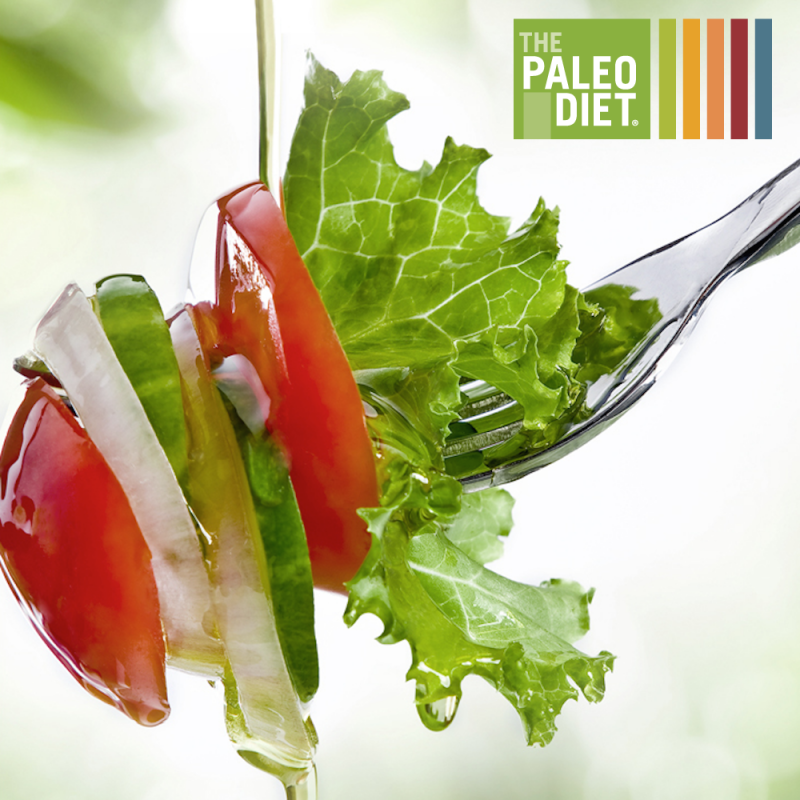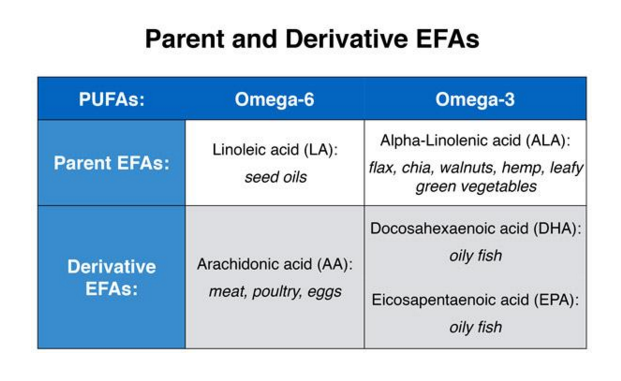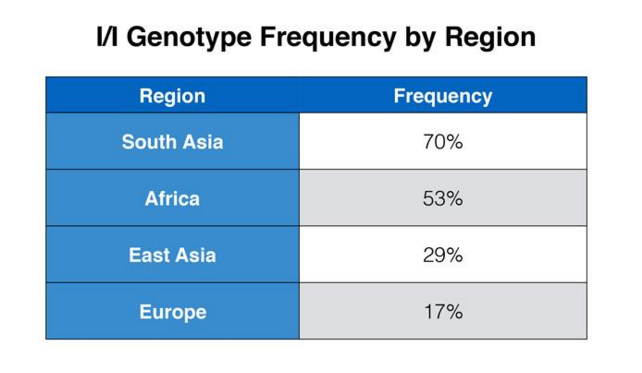Study Finds Multigenerational Vegetarians Are Genetically Predisposed to Cancer and Heart Disease on a Modern Diet

It’s no secret that vegetarian diets pose unique nutritional challenges. Protein, iron, vitamin D, and vitamin B12, for example, are nutrients vegetarians typically struggle to obtain optimally. However, they are often overlooked as the important differences between animal and vegetable foods with respect to essential fatty acids (EFAs).
As we’ll see, vegetable EFA sources are inferior to animal sources. According to research recently conducted by Cornell University scientists, these shortcomings promote genetic adaptations, which make intergenerational vegetarians more prone to inflammation-related diseases, particularly cancer and heart disease 1.
The EFA Basics
The only fatty acids considered “essential” are polyunsaturated fatty acids (PUFAs), which can be broadly categorized as either omega-6 or omega-3. They are called essential because the body cannot synthesize them and therefore, must obtain them from food. For both omega-6 and omega-3, there are parent and derivative EFAs, as shown below.

Whereas the derivative EFAs are the forms most used by the body and of paramount importance, only the parent EFAs are considered essential. This is because the body can convert the parents into the derivatives.
These conversions, however, are problematic (more on this in a moment).
A key difference between plant and animal foods is that plant foods contain parent EFAs, but only animal foods contain derivative EFAs. Therefore, if you’re a vegetarian, your only option is to consume foods rich in parent EFAs and then let your body make the conversions. Omnivores, on the other hand, can bypass these conversions by going directly to animal foods that contain derivative EFAs.
Conversion Problems
For omega-6 PUFAs, the body can easily convert the parent EFA, called linoleic acid (LA), into arachidonic acid (AA), the derivative. For omega-3 PUFAs, however, the conversion from alpha-linolenic acid (ALA), the parent EFA, into docosahexaenoic acid (DHA) and eicosapentaenoic acid (EPA), the derivatives, is far less efficient. Studies indicate that men convert only about 5% of ALA into EPA, and less than 0.5% of ALA ultimately becomes DHA 2,3,4,5. Conversion rates among women are a little better, probably based on the effects of estrogen 6,7.
Let’s think about this from an evolutionary perspective. Early humans living inland would have had limited access to fish and other marine sources of DHA and EPA. Does it seem plausible that after many generations, evolution would have selected for mutations that would enhance EFA conversions?
Evolution and its Double-Edged Sword
In 2012, Tom Brenna, a scientist from Cornell University, and his colleagues discovered “rs66698963,” a genetic variant in the human genome that influences the conversion of parent EFAs into derivatives. The “I/I” genotype, which favors these conversions, is far more prevalent among populations eating vegetarian diets or diets with limited amounts of animal foods.
According to data from the 1000 Genomes database, people from South Asia and Africa are more likely to have the I/I genotype compared to people from Europe or East Asia. Broadly speaking, the former tend to consume fewer animal foods than the latter. Kaixiong Ye, a co-author of the study, explains, “our results show a global frequency pattern of the insertion mutation adaptive to a vegetarian diet, with the highest frequency in Indians who traditionally relied heavily on a plant-based diet. 8”

So how do higher risks for cancer and heart disease fit into this story? Well, elevated levels of arachidonic acid (AA), the derivative of LA, causes chronic, low-grade inflammation, and this inflammation promotes both cancer and heart disease. Brenna explains, “Omega-6 arachidonic acid mediates and enhances inflammation and thus may well be a contributing factor to the decade’s long development of heart disease, as well as accelerating the development of cancer cells and tumors. 9”
The Dangers of a Modern High Omega-6 Diet
Because of genetic adaptations for improved conversions of parent to derivative EFAs, multigenerational vegetarians in the study exhibited higher basal plasma levels of AA1, which can increase inflammation and put them at higher risks for cancer and heart disease. But why would evolution favor a mutation that increases disease risks?
Well, Brenna estimates that this mutation occurred around one million years ago, and at that time, our ancestors’ diets were very low in LA (omega-6) compared to modern diets. The omega-6 to omega-3 ratio of evolutionary diets was roughly 1:1, whereas today’s ratio is around 10:1 and higher still among vegetarians.
Our ancestors, who had the I/I genotype weren’t eating enough omega-6 to promote dangerous AA levels. In fact, because of the low level of derivative EFAs in their diet, the I/I genotype actually conferred an advantage on them. However, the modern diet has excessive amounts of omega-6, primarily from industrial seed oils, including corn, soy, canola, and sunflower oils.
The takeaway from this study is straightforward—diets rich in omega-6 promote chronic, low-grade inflammation, and this inflammation is even worse for multigenerational vegetarians. Brenna sums it up nicely: “The message for vegetarians is simple. Use vegetable oils that are low in omega-6 linoleic acid, such as olive oil. 10”
Or better yet, follow the Paleo diet template, and you’ll reap all the benefits of animal foods while avoiding the dangers of industrial seed oils.
References
[1] Brenna, JT, et al. (March 2016). Positive selection on a regulatory insertion-deletion polymorphism in FADS2 influences apparent endogenous synthesis of arachidonic acid. Molecular Biology and Evolution (online publication). Retrieved from //mbe.oxfordjournals.org/content/early/2016/03/09/molbev.msw049
[2] Burdge GC, Jones AE, Wootton SA. (October 2002). Eicosapentaenoic and docosapentaenoic acids are the principal products of α-linolenic acid metabolism in young men*. British Journal of Nutrition, 88(4). Retrieved from //www.ncbi.nlm.nih.gov/pubmed/12323085
[3] Burdge GC, Jones AE, Wootton SA. (October 2002). Eicosapentaenoic and docosapentaenoic acids are the principal products of α-linolenic acid metabolism in young men*. British Journal of Nutrition, 88(4). Retrieved from //www.ncbi.nlm.nih.gov/pubmed/12323085[4] Plourde M, Cunnane SC. Extremely limited synthesis of long chain polyunsaturates in adults: implications for their dietary essentiality and use as supplements. Appl Physiol Nutr Metab. 2007 Aug;32(4):619-34.
[5] Brenna JT1, Salem N Jr, Sinclair AJ, Cunnane SC; International Society for the Study of Fatty Acids and Lipids, ISSFAL. Alpha-Linolenic acid supplementation and conversion to n-3 long-chain polyunsaturated fatty acids in humans. Prostaglandins Leukot Essent Fatty Acids. 2009 Feb-Mar;80(2-3):85-91.
[6] Giltay EJ, Gooren LJ, Toorians AW, Katan MB, Zock PL. (November 2004). Docosahexaenoic acid concentrations are higher in women than in men because of estrogenic effects. American Journal of Clinical Nutrition, 80(5). Retrieved from //www.ncbi.nlm.nih.gov/pubmed/15531662[7] Burdge GC, Wootton SA. (October 2002). Conversion of α-linolenic acid to eicosapentaenoic, docosapentaenoic and docosahexaenoic acids in young women. British Journal of Nutrition, 88(4). Retrieved from //www.ncbi.nlm.nih.gov/pubmed/12323090
[8] Molecular Biology and Evolution (Oxford University Press). (March 29, 2016). Are we what we eat? Retrieved from https://www.sciencedaily.com/releases/2016/03/160329184939.htm
[9] ResearchGate. (March 29, 2016). Human genome shaped by vegetarian diet increases risk of cancer and heart disease. Retrieved from https://www.researchgate.net/blog/post/human-genome-shaped-by-vegetarian-diet-increases-risk-of-cancer-and-heart-disease
[10]Knappton, Sarah. (March 29, 2016). Long term vegetarian diet changes human DNA raising risk of cancer and heart disease. The Telegraph. Retrieved from //www.telegraph.co.uk/news/science/science-news/12206669/Long-term-vegetarian-diet-changes-human-DNA-raising-risk-of-cancer-and-heart-disease.html
Christopher Clark
Christopher Clark is an entrepreneur, food writer, and business owner with years of experience with nutrition.
More About The Author



